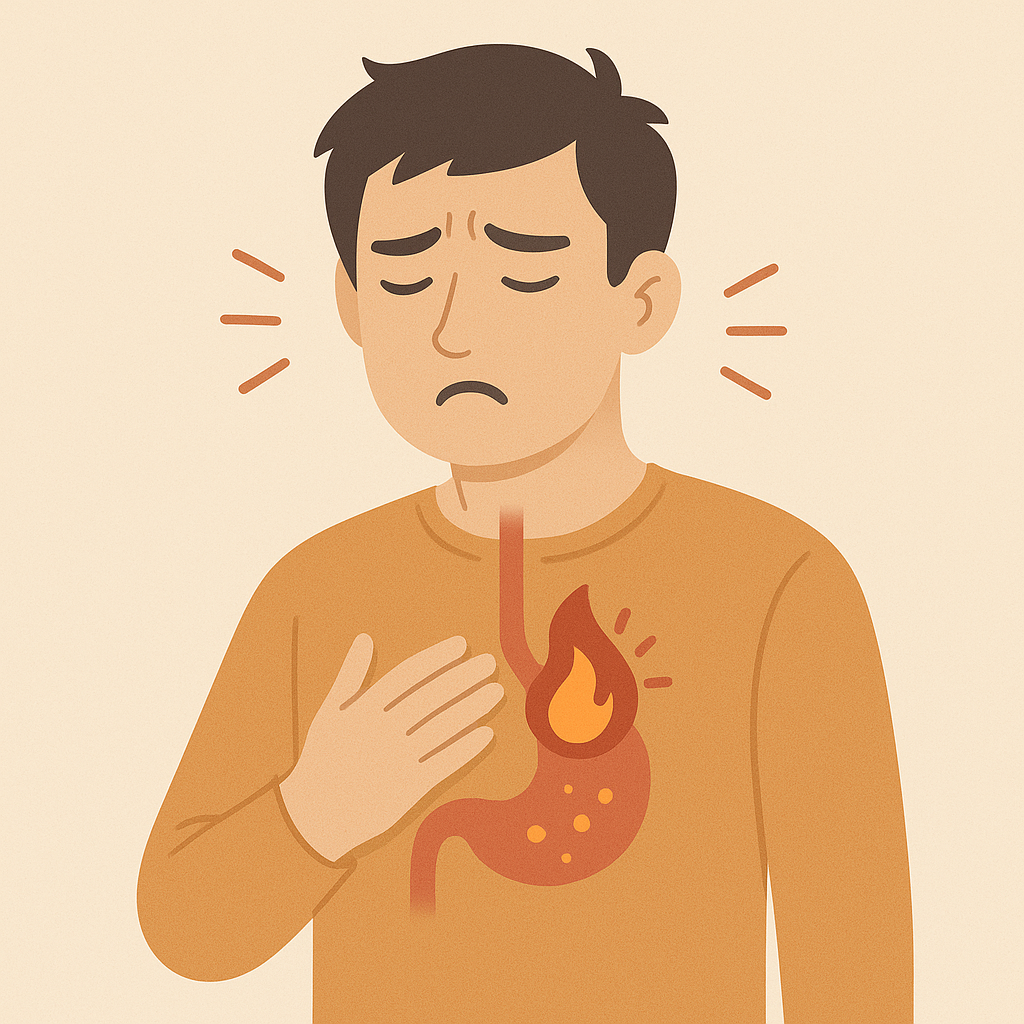
GERD: Understanding Acid Reflux — Symptoms, Myths, and Medical Advice
What is GERD?
Gastroesophageal Reflux Disease (GERD) is a chronic condition in which stomach acid or contents flow back into the esophagus — the tube connecting your mouth and stomach.
This backflow (called reflux) irritates the lining of the esophagus and causes symptoms like heartburn, chest discomfort, or regurgitation.
Occasional reflux is common, but GERD is diagnosed when symptoms occur two or more times per week and affect your quality of life.
Common Signs and Symptoms
- Burning pain in the chest (heartburn), especially after meals or when lying down
- Sour taste or food coming back into the mouth (regurgitation)
- Difficulty swallowing or a feeling of a lump in the throat
- Chronic cough, hoarseness, or sore throat
- Worsening of asthma or chest discomfort not related to the heart
If you experience these regularly, it’s important to discuss them with your doctor.
Risk Factors
- Overeating or eating late at night
- Obesity or pregnancy
- Smoking and alcohol consumption
- Certain medications (NSAIDs, calcium channel blockers, sedatives)
- Hiatal hernia
Myths vs. Facts
Myth | Fact |
“GERD is just heartburn.” | GERD can also cause cough, sore throat, or dental problems. |
“Milk helps with acid reflux.” | Milk may briefly soothe symptoms but can later increase acid production. |
“I can stop treatment once I feel better.” | Stopping medications too early can lead to relapse; follow your doctor’s plan. |
“Only adults get GERD.” | GERD can also affect infants and children. |
Medical Recommendations
Lifestyle & Diet Modifications:
- Maintain a healthy weight.
- Avoid lying down for 2–3 hours after eating.
- Limit trigger foods: spicy, fatty, fried foods, chocolate, caffeine, alcohol.
- Elevate the head of the bed by 15–20 cm.
- Quit smoking.
Medication:
- Proton Pump Inhibitors (PPIs) are the mainstay treatment for symptom relief and healing of esophageal inflammation.
- Antacids and H2 blockers may provide short-term relief.
- Long-term therapy should be guided by a gastroenterologist.
When to See a Doctor:
- Difficulty or pain when swallowing
- Vomiting blood or black stools
- Unintentional weight loss
- Persistent symptoms despite medication
These may signal complications like esophagitis, Barrett’s esophagus, or strictures, which require further evaluation (endoscopy).
Takeaway
GERD is a manageable but chronic condition. With proper lifestyle changes, medical treatment, and regular check-ups, most patients achieve excellent control of their symptoms and prevent complications.
Contact us today!
Working hours
Monday – Friday: 08:30 – 17:00
Saturday: 09:00 – 14:00
Sunday: Closed
